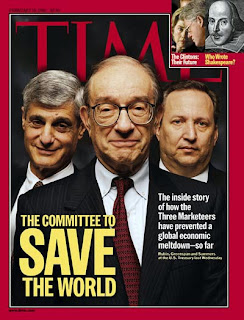JP Morgan holds a massive short position in silver, some of which it is said to have inherited as a concentrated speculative position from Bear Stearns. Retreats from such overextended positions are never easy, and therefore never straightforward. Having such a position can be very profitable in the short term since it gives one remarkable control over the paper price of a commodity, paricularly if the regulators are willing to turn a blind eye to certain trading practices.
If it is indeed reducing its oversized short positions, JP Morgan will undoubtedly attempt to 'smack the price' on occasion even as it covers, to prevent the specs and hedge funds from taking too much leash to the long side. This will help to prevent them from provoking a disorderly rout and, God forbid, a 'short squeeze.' In these managed markets, the major players tend to respect each other's turf, so one has to wonder who might take them on.
The 'deadline' if any that they might face is prospective position limits to be imposed and more transparent reporting required by the CFTC. Given the past history, it is most likely that JPM will not be overly inconvenienced by them in the short term. Ted has always been the optimist with regard to regulatory reform and willingness to 'do the right thing.' I also believe this will happen, but slowly. Still, it does seem as though the darkest hour is always before the dawn, and the last few weeks have been disheartening for the metals bulls, as demonstrated in the sentiment indicators.
Let's see what happens in the market and take our cues from that.
"JP Morgan Chase, the big short in the silver market, is "covering like crazy," silver market analyst Ted Butler remarks in his weekly interview with Eric King of King World News.
Butler thinks that both silver and gold turned around this week and he wonders whether, in light of the new financial regulation law, MorganChase will ever come back to shorting silver so much.
Butler also is very encouraged by the comments of Commissioner Bart Chilton of the U.S. Commodity Futures Trading Commission and the promise of position limits in the precious metals markets." Chris Powell, GATA
You can listen to the interview with metals analyst Ted Butler at the King World News Internet site here.
















































